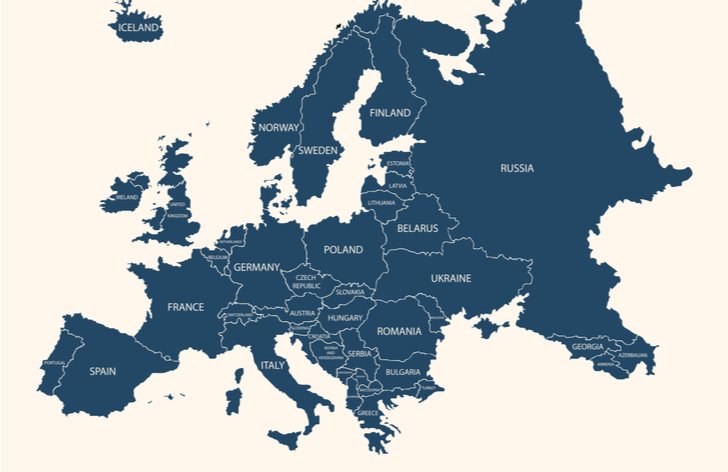* Skepticism about fiscal austerity drives risk aversion
* Gold falls from all-time high, Treasuries prices jump
* S&P 500 falls over 2 pct despite positive U.S. data
(Updates with European stock markets' close)
By Walter Brandimarte
NEW YORK, May 14 (Reuters) - The euro hit an 18-month low
versus the dollar and global shares fell sharply on Friday
over fears that Europe's fiscal austerity plans may derail
economic recovery.
Gold tumbled from an all-time high of $1,248.95 an ounce
on Friday to a session low at $1,219.05 after it was swept up
in selling of stocks and other commodities after it failed to
break above the $1,250 level. Earlier, gold had soared to a
record as concerns about the euro-zone debt crisis spurred
appetite for safer investments and drove the demand for U.S.
Treasury debt.
The dollar reached its strongest level in a year versus a
basket of key currencies.
Stocks and oil prices plunged despite data showing U.S.
retail sales and industrial production rose in April. The
three major U.S. stock indexes fell nearly 2 percent or more
while U.S. crude oil futures prices slumped nearly 4 percent
or almost $3 below $72 a barrel.
For details on U.S. economic data, see [].
European authorities announced a massive debt safety net
for Greece, Spain and Portugal this week, but investors remain
skeptical those countries can take the pain of overhauling
weak public finances.
"If you look long-term, everyone is worried about what
these austerity measures will mean in terms of growth," said
Kathy Lien, director of currency research at GFT in New York.
The Dow Jones industrial average <> lost 207.76
points, or 1.93 percent, at 10,575.19, while the Standard &
Poor's 500 Index <.SPX> fell 27.09 points, or 2.34 percent, to
1,130.35. The Nasdaq Composite Index <> was down 62.85
points, or 2.62 percent, at 2,331.51.
Shares of credit card companies tumbled a day after the
U.S. Senate voted to limit fees charged on credit and debit
card transactions. Visa Inc <V.N> lost 10 percent and
MasterCard Inc <MA.N> shed 9 percent. []
The MSCI world equity index <.MIWD00000PUS> plunged 2.7
percent, while the FTSEurofirst 300 index <> dropped
3.39 percent to close at 1,014.25, with banks taking a
beating.
The STOXX Europe 600 banking index <.SX7P> was down around
5.2 percent. Spanish banks Banco Santander <SAN.MC> fell 8.98
percent and and BBVA <BBVA.MC> lost 7.58 percent.
U.S. crude oil <CLc1> fell 3.86 percent to $71.53 per
barrel, after hitting a session low of $71.05, the lowest
since Feb. 8.
EURO BATTERED
The EU's emergency assistance plan has done little to
bolster confidence in the euro system, a concern highlighted
by U.S. While House Economic Adviser Paul Volcker. On Thursday
Volcker said European debt troubles could undermine the single
currency. []
The euro <EUR=> slid as low $1.2358 on electronic trading
platform EBS, the lowest since October 2008. It last traded at
$1.2393.
"The euro hasn't derived any benefits from any budget cuts
from Spain and Portugal," said Chris Turner, head of FX
strategy at ING, which forecasts the euro will be at $1.15 in
six months.
"People are either concluding that these cuts will be
unsuccessful and debt sustainability remains a key issue, or
they will be successful in aggressive fiscal tightening and
that these economies would slow aggressively and the European
Central Bank has to keep interest rates low," he added.
Gold prices <XAU=>, which often climb in times of risk
aversion, earlier soared to a record high of $1,248.95.
But when gold didn't hit $1,250 or break above it,
investors started selling the metal and it slid to a session
low of $1,219.05. By early afternoon in New York, spot gold
was trading at around $1,226.85.
The safe-haven appeal of U.S. Treasuries also rose
dramatically, with the price of the benchmark 10-year note
<US10YT=RR> up 24/32, while its yield slipped to 3.444 percent
shortly after 1 p.m. in New York.
Investors' anxiety towards riskier assets also has been
reflected in the movement of cash between markets this week.
Money market funds, perceived to be among the least risky
investments, attracted new money this week for the first time
since January as investors moved back into cash, data from
EPFR Global showed. []
At the same time, the amount of money pulled from risky,
high-yield bond funds hit a five-year high, while equity funds
in emerging markets also suffered.
(Additional reporting by Natsuko Waki in London and Wanfeng
Zhou in New York; Editing by Andrew Hay and Jan Paschal)
www.finance.czZprávy
GLOBAL MARKETS-Euro at 18-mo. low on debt woes; gold off high
Den otců je tu. Jaké výhody mohou získat tatínci, tátové a fotři?
Na neděli 15. června připadá Den otců. Není to v našich končinách zatím příliš slavený svátek, jeho popularita však pomalu stoupá. Viditelně…
Aplikace na podnikatelský odpad vydělá městům miliony. Živnostníci ji budou nenávidět
Živnostník neplatí, město tratí. Českým obcím unikají miliony kvůli tomu, že drobní podnikatelé často netuší, že mají zákonnou povinnost platit za…
Pouze každá desátá žena vydělává v Německu více než její partner. Proč?
Do rozpočtu německých domácností přispívají zpravidla více muži než ženy. Německo patří mezi členské země Evropské unie s nejvýraznějšími mzdovými…
Preferovaný potomek vs. opomíjený. Co rozhoduje o výši dědictví?
Pokud rodiče po majetkové a finanční stránce preferovali některé ze svých dětí a dávali mu hodnotné dary a poskytovali…
Kdy musejí penzisté platit daň z příjmu a proč se týká jen někoho
Většina starobních důchodců nemá žádné daňové starosti. Kdy však musí starobní důchodci platit daň z příjmu? Jak se vypočítává daň z příjmů z…
Máslo a vejce jsou dražší než v letech s dvoucifernou inflací, cukr už zlevnil
Stále vás překvapují některé ceny při nákupu běžných potravin? Není divu. Ačkoli dříve nevídané plošné zdražování z nedávných let snad ustalo,…
Poslanecká sněmovna zrychleně schválila snížení důchodů pohlavárům
Poslanecká sněmovna začátkem června hlasovala o novele zákona o organizaci a provádění sociálního zabezpečení, která má…
Na plné uznání zapomeňte. Jak se počítá evidence na Úřadu práce pro důchod?
Měsíční částku starobního důchodu ovlivňuje celý průběh pojištění. Čím vyšší rozhodné příjmy a čím vyšší získaná doba pojištění, tím je měsíční…
Samosběr třešní 2025: kde letos zaplatíte nejméně za kilogram?
Samosběry třešní jsou v plném proudu a pěstitelé napříč Českem otevírají své sady veřejnosti. Cena za kilo se letos pohybuje mezi 50 a…
Jaké příjmy musíte mít na průměrný důchod? A mohou na něj dosáhnout i předčasní důchodci?
Jaké příjmy musíte mít, abyste dosáhli na průměrný starobní důchod v roce 2025? A jaké příjmy musíte mít, abyste jako předčasní důchodci dosáhli na…
Poprali jste se a způsobili někomu zranění? Kdo musí platit zdravotní pojišťovně regresní náhrady
Zdravotní pojišťovny mají právo na úhradu nákladů spojených s čerpáním zdravotní péče, pokud dojde k jejich vynaložení v důsledku protiprávního…
Zvýšení příspěvku na péči neprošlo, ale naděje ještě nezhasla
To, zda se zvýší příspěvek na péči alespoň v prvních stupních závislosti, zatím není jasné. Je však jisté, že to nebude prostřednictvím…
Nárok na vyšší podporu v nezaměstnanosti přijde později. Rozdíl bude v tisících
Společně se změnami v zákoníku práce dojde i ke zvýšení podpory v nezaměstnanosti. O kolik a kdy se to stane?
Všichni platí státu stejně? Ale kdepak. Od jaké mzdy začíná zdanění práce klesat
Celkové zdanění práce zaměstnanců s velmi vysokou roční hrubou mzdou je v Česku nižší než zaměstnanců „pouze“ s nadprůměrnou mzdou. Jak je to…
Bez ukazování pasu v létě dojedete k dalším evropským mořím
V začínající letní turistické sezóně mohou lidé ze zemí Schengenského prostoru využít nové cestovatelské výhody. Díky novoročnímu plnému zapojení…
Vyšší životní minimum: více peněz i širší nárok na sociální dávky
S účinností od 1. 5. 2026 se zvýší některé částky životního minima, které ovlivní řadu sociálních dávek. Díky této změně se zvýší nejen některé…
Nejlépe s minimální mzdou vyžijí zaměstnanci v Lucembursku. Jak si stojí Češi?
Minimální mzda je legislativou zavedena nejenom ve většině členských zemí Evropské unie, ale i např. v USA, v Kanadě, v Japonsku, v Austrálii nebo…
Penzijní spoření pro děti vám daně nesníží, část peněz však lze vybrat
Doplňkové penzijní spoření pro děti můžete svému potomkovi sjednat v podstatě hned cestou z porodnice. Proti smlouvě uzavírané dospělým investorem…
Platit v cizině kartou je výhodnější, ale ne bez rizika. Na co dát pozor na dovolené?
Sezóna dovolených začala a s ní se vrací každoroční otázka: platit v zahraničí raději hotově, nebo kartou? Rizika i výhody přinášej obě možnosti.…
Může být ztráta důvěry důvodem pro rozvázání pracovního poměru?
Prokazatelná ztráta důvěry pomáhá zaměstnavateli ukončit pracovní poměr se zaměstnancem rychle jeho okamžitým zrušením než…
Líp už bylo? Deset důchodových změn k horšímu z posledních let
Podmínky pro výpočet řádného i předčasného důchodu se během posledních let změnily. Podívejme se na vybrané negativní změny, které zpřísňují…
Zaměstnanci v rizikových profesích si budou muset o příspěvek na předdůchod říct sami
Nová pravidla důchodového zabezpečení počítají s tím, že zaměstnavatelé začnou povinně přispívat zaměstnancům ve 3. rizikové…
O kolik vám zkrátí důchod každý další interval předčasnosti? Počítejte s námi
Při odchodu do předčasného důchodu je nutné počítat s trvalým krácením penze právě z důvodu dřívějšího odchodu. Krácení za přitom provádí za…
Začal platit nový zákoník práce. Změny se týkají zkušební doby a výpovědní lhůty
Začala platit novela zákoníku práce. Mění běh výpovědní a zkušební doby, ale i práva osob na rodičovské dovolené. Jak?
Výhoda pro zaměstnance, nebo pro zaměstnavatele? K čemu je dobré přerušení pracovní cesty
Přerušení pracovní cesty umožňuje zaměstnanci skloubit plnění pracovních úkolů se soukromými záležitostmi a ušetřit náklady…
Jahody levněji než v obchodě? Na plantážích začínají samosběry
Sezóna jahod je opět tady a s ní i možnost výrazně ušetřit díky samosběrům. Místo drahého ovoce z obchodů si můžete jahody…
Tohle může vážně ohrozit váš důchod. Proč jsou mezery v pojištění problém?
Každé sociálně nepojištěné období má negativní důchodové následky. V nejhorším případě není starobní důchod vůbec přiznán, v lepším případě je…
Jak dlouho a kolik musíte vydělávat na předčasný důchod 21 000 Kč?
Pravidla pro předčasný důchod se během let zpřísňují, přesto je o něj stále zájem. Ve kterých případech bude předčasný důchod vyšší než 21 tisíc…
K práci ještě vedlejšák a do důchodu o to dříve? Takhle to nefunguje
Někteří zaměstnanci si přivydělávají výkonem samostatné výdělečné činnosti. Mají tedy současně dva příjmy. Jeden ze zaměstnání a druhý z podnikání…
Krácený stejný jako řádný? O kolik musíte mít vyšší příjmy kvůli předčasnému důchodu
Při odchodu do předčasného důchodu je nutné počítat s trvale nižším důchodem. Někteří lidé mají předčasný důchod i přes krácení stejně vysoký jako…
Zaměstnanecké benefity mají po rozdělení nové limity, bez daně můžete dostat víc než průměrnou mzdu
U zaměstnaneckých benefitů se změnily roční limity pro osvobození od daně a dále také došlo k rozdělení dvou kategorií. Co to znamená pro zaměstnance?
Mladí mohou v létě na brigádu už od 14 let. Co se u nich bude muset dodržet?
Chystá se vaše dítě na letní brigádu? Na co by se mělo připravit a změní se něco se snížením věku, od kterého mohou mladiství pracovat?
Pamatujte na nemoc. Kdy ani s vysokým příjmem nedostanete nemocenskou?
Pouze při splnění zákonných podmínek lze dostávat na účet nemocenskou. Podívejme se několik vybraných příkladů, kdy ani vysoké příjmy nestačí k…
Srovnání spořicích účtů v květnu 2025: kdo nabízí nejvyšší úrokové sazby?
Spořicí účty se v době vysoké inflace těšily velké oblibě. Jaké úrokové sazby nabízejí banky a spořitelny nyní? Můžete dosáhnout na 4% úrokovou sazbu…
Právo na výchovné má i ten, kdo zvládl péči bez ztráty příjmu, řekl soud
Nejvyšší správní soud rozhodl ve prospěch vdovce, který po smrti manželky sám vychovával dceru. ČSSZ mu odmítla přiznat výchovné s odkazem na to, že…
Podnikáte při zaměstnání? Pozor na pokutu za pozdní podání přehledu o příjmech
Za neodevzdání přehledu o příjmech a výdajích zdravotní pojišťovně v zákonném termínu hrozí poměrně vysoká pokuta. Co je dobré vědět a jak se…
Zaměstnanci veřejného sektoru si díky rozšíření náhradních dob mohou přijít na vyšší výdělky
Od 1. června 2025 se rozšíří okruh tzv. náhradních dob, které se započítávají do praxe pro výpočet platového stupně ve veřejném sektoru. Nově se bude…
Daň z nemovitosti musíte zaplatit do 2. června. Už máte platební údaje?
Jste vlastníkem nemovitosti? V takovém případě se vás až na výjimky týká povinnost zaplatit z ní jednou za rok daň. Jak to provedete a co se stane,…
Prací ne, změnou zdravotního stavu ano. Kdy se změní částka invalidního důchodu?
V Česku se vyplácejí tři druhy invalidních důchodů: prvního, druhého a třetího stupně. Během pobírání invalidního důchodu může dojít ke změně jeho…
Vypadá jako byt, ale byt to není. Makléř varuje před nástrahami ateliérů
Ateliér může na první pohled vypadat jako běžný byt, ale legislativně jím není. Co všechno by měl kupující vědět, než si pořídí nemovitost, ve které…
V pěti zemích EU je minimální hodinová mzda přes 12 eur. Jak si stojí Česko?
Ve většině členských zemích Evropské unie je legislativou zavedena minimální mzda. V Lucembursku, v Nizozemí, v Irsku, v Německu a v Belgii je v…
V daňovém přiznání je chyba. Budete podávat formulář opravný, nebo dodatečný?
Zjistili jste v daňovém přiznání chybu? Nebo na ni dokonce přišel finanční úřad? Chybu budete muset opravit. Podáváte pak přiznání opravné, nebo…
Pět důchodových chyb, které vám mohou důchod zkrátit o tisíce
Podívejte se na pět důchodových chyb, které mohou přiznaný důchod zkrátit o tisíce korun. Jak se chyb vyvarovat a kdy (ne)dají opravit? A může se i …
Může se předdůchodce stát předčasným důchodcem? Deset výhod předdůchodu
Jednou z možností, jak přestat dříve pracovat, a přitom se vyhnout odchodu do trvale kráceného předčasného důchodu, je čerpání předdůchodu. Jaké…
Zkrácený úvazek vám pomůže s důchodem, ale možná si připlatíte. Co ještě potřebujete vědět?
Pro některé zaměstnance je práce na zkrácený úvazek možností, jak skloubit kariéru s osobním životem. Jak je to však se zdaněním zkráceného úvazku…
Povinnost mlčet o výši mzdy zmizí od 1. června z pracovních smluv
Od 1. června 2025 přichází důležitá změna pro zaměstnance i zaměstnavatele – doložky o mlčenlivosti týkající se výše mzdy už nebudou moci být…
Úřad práce rozdělí nezaměstnané na rizikové a nerizikové. O diskriminaci prý nepůjde
Uchazeči o zaměstnání na Úřadu práce budou nově rozdělovaní do skupin podle míry rizikovosti. Co to znamená a kdo bude vyhodnocen jako rizikový?
Pracující důchodci i podnikaví studenti. Pro koho je zdravotní pojištění nejvyšší daní?
Většina pracujících platí nejvíce na dani z příjmu nebo sociálním pojištění. Zdravotní pojištění stojí mnohdy stranou, přesto je pro některé…
Do kdy musí OSVČ odevzdat přehledy na ČSSZ a zdravotní pojišťovnu?
Do kdy musejí OSVČ odevzdat přehled o příjmech a výdajích OSVČ za rok 2024 na ČSSZ a zdravotní pojišťovnu? Jaký je nejzazší termín pro podání…
Stačí 46 tisíc korun měsíčně jako důstojná mzda? Kolik mají lidé brát a kde leží důstojnost
Platforma ekonomů, sociologů, ale i lidí z charitativních organizací nedávno zveřejnila částku takzvané minimální důstojné mzdy pro rok 2024.…
Hledáte...
...odbornou radu?
...další informace?
...informace k investování? 
...informace k podnikání? 
...informace pro studenty? 




















































